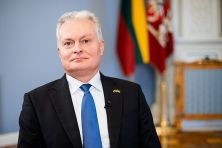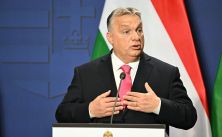The threat of nuclear escalation will continue to be the main asset of Russian manipulation of perceptions. We must address this problem directly.
First, we are already in a scenario with a high risk of nuclear escalation. We are not here because Ukraine or the West refuse to settle or de-escalate. In fact, both agreed to an eight-year deal and accepted a Russian-driven system of peace in Ukraine. But Putin invaded anyway, bringing us to this unstable scenario with an increased likelihood of nuclear weapons use.
Second, the risk of war between Russia and NATO increases exponentially if Russia maintains its gains in Ukraine.
A victorious Russia is a faster path to a NATO-Russia war than a victorious Ukraine. Ultimately, a Russian victory in Ukraine would provide a compelling argument for the effectiveness of nuclear blackmail and lead to nuclear proliferation. ISW has assessed in detail the other costs of losing Ukraine.
A Russian victory in Ukraine would mean a victory for reflexive control. If Russia wins in Ukraine, it will mean that the Kremlin has succeeded in undermining the will of the West and its ability to reason from real truths and its interests. Truth and free will are concepts without which a free world cannot exist. Helping Ukraine win and overcome the provisions that Russia is trying to impose must be a major effort by the United States and the free world if they are to remain free.
Ukraine’s victory will strengthen NATO’s security. Ukraine will be an invaluable asset to the United States and a testament to the values that underpin Western societies. Ukraine will be able to share its experience of how to successfully fight a modern war with US allies. Stopping Russia in Ukraine would allow the West to restore its deterrence capabilities – especially against Russia. A pro-NATO Ukraine, even if it is not in the alliance, would pose a serious military challenge to Russian plans to attack the Baltic States or Poland, strengthening NATO’s ability to deter such aggression and avoid a future war with Russia.
The West is a giant that sometimes behaves like a mouse when it comes to Russia. All it has to do is stand up. Therefore, Russia needs to develop offsets and ways of asymmetric struggle. The power dynamic is in favour of the West – and Ukraine, if the West decides to mobilise on behalf of Ukraine. Mobilisation would mean a sharp increase in military production, conserving existing military capabilities and economic assets, and accepting a higher threshold of pain and risk now to avoid greater costs, pain and risk in the future.
The West is not as fragile as Russia would have us believe. Putin tried but failed to freeze Europe. He tried but failed to break NATO (although he will have a real chance to do so if Russia wins in Ukraine). Minimising the West’s perception of its own power is a key component of manipulating the Kremlin’s perception.
The West is awakening. Many Western leaders and societies have come to grips with the reality that a return to the status quo ante is not possible, that Russia is a self-declared adversary, and that the West has two options: confront the threat or surrender to it. Ukraine’s European and Asia-Pacific partners began to form coalitions to purchase weapons to support Ukraine; European countries began to build up their defence industrial bases to replenish NATO’s stockpiles and help Ukraine.
French President Emmanuel Macron warned the West against showing any signs of weakness towards Russia as he considered sending Western troops to Ukraine. But US leadership remains indispensable.













